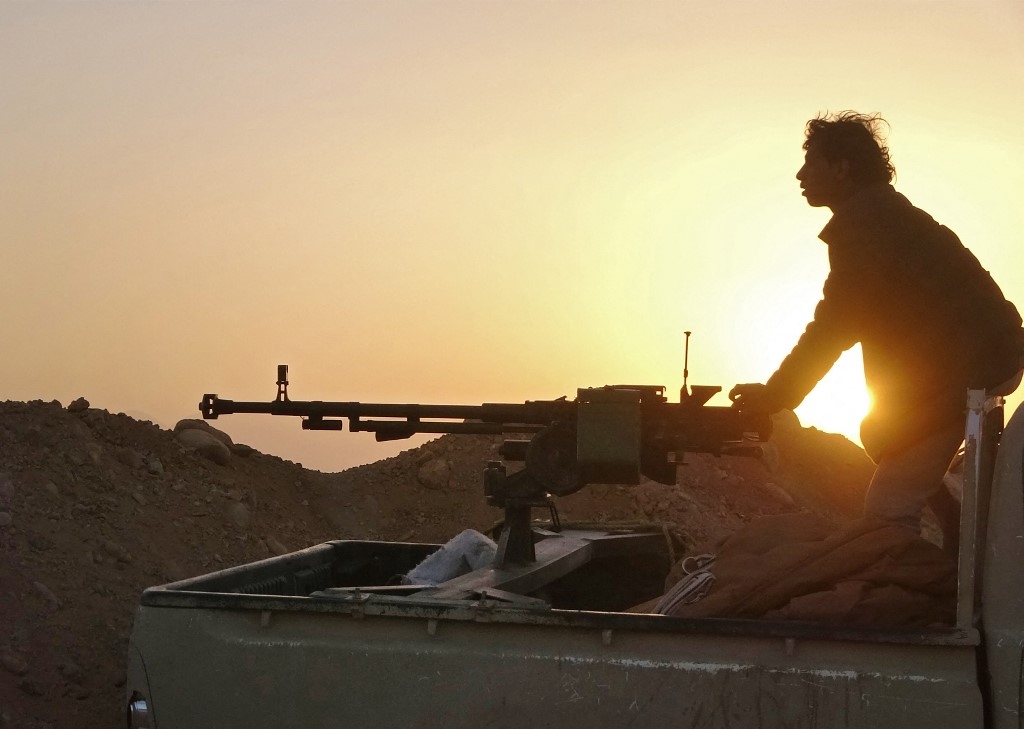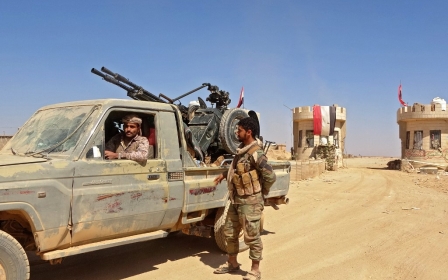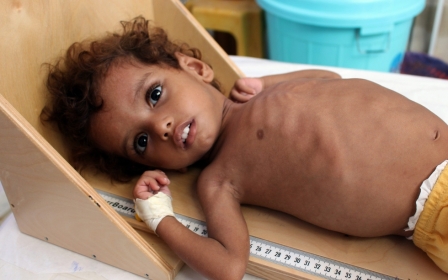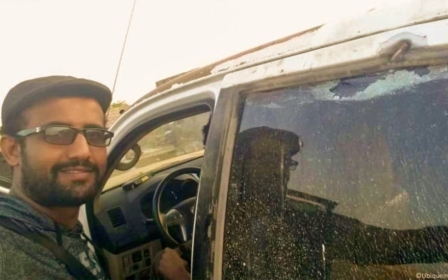Dozens killed as fighting intensifies in Yemen's Marib

Clashes between Yemeni government forces and Houthi rebels intensified on Saturday in the strategic province of Marib, with military sources saying a senior loyalist commander was among dozens of fighters killed.
Earlier this month, the Houthis resumed a push to capture Marib city, which lies close to some of Yemen's richest oil fields in the north of the country.
Hundreds of fighters from both sides were killed in fighting since Friday, according to government sources. The Houthis do not usually release casualty tolls.
"Twenty-two members of the government forces and more than 28 rebels have died in the last 24 hours in the fighting," including special forces commander in Marib General Abdel Ghani Shaalan, a military source said.
"Fighting continues unabated on all fronts in Marib province" - the government's last bastion in the north of the country - the source said, adding that neither side had made any advance on the ground.
New MEE newsletter: Jerusalem Dispatch
Sign up to get the latest insights and analysis on Israel-Palestine, alongside Turkey Unpacked and other MEE newsletters
The Saudi-led coalition backing the internationally recognised government launched more than 12 air strikes in support of government forces, according to the Houthi-run Al Masirah TV channel.
On Friday, more than 60 fighters were killed in fighting in Marib, the bloodiest day since the start of the offensive on February 8.
The government, meanwhile, accused the Houthis of firing 10 ballistic missiles on Friday night on Marib city, the official Saba news agency reported, with no reports of casualties.
On Saturday, multiple blasts shook the Saudi capital Riyadh, with state television saying the Saudi-led coalition had thwarted a "Houthi ballistic missile attack".
The Houthis did not confirm the claim, but they have carried out cross-border attacks on Saudi Arabia with drones and missiles in the past.
'Civilians at risk'
Yemen has been plagued by violence since 2014, after Houthi rebels seized the capital, Sanaa, forcing the government to move its base to the southern port of Aden.
The Houthis now control most of the country's north, and the government has been struggling to defend Marib province and the city.
The United Nations, which says Yemen is facing the world's worst humanitarian crisis, last week warned of a potential humanitarian disaster if the fight for Marib continues.
Until early last year, life in Marib was relatively peaceful, despite war raging elsewhere in the Arabian Peninsula country.
With its proximity to the Saudi border, the province was largely untouched by the first years of conflict and even flourished, as those who sought sanctuary there opened businesses and restaurants.
The UN now says the fighting has put "millions of civilians at risk".
The upsurge in violence this month comes after Washington decided to remove the Houthis from its list of terrorist groups to ensure aid is unimpeded and to pave the way toward restarting peace talks.
Observers say the Houthis want to capture Marib as leverage before entering into any negotiations.
US envoy Tim Lenderking headed on Monday to the region on a tour of Gulf countries, as he seeks ways to end Yemen's brutal war.
His discussions "will focus on the United States' dual-track approach to end the conflict in Yemen: a lasting political solution and humanitarian relief for the Yemeni people," a statement from the State Department said, without specifying his exact stops.
Yemen's grinding conflict has claimed at least 233,000 lives, mostly civilians, including around 100,000 combat deaths, the UN's humanitarian office said in December. It has also displaced millions, according to international organisations.
Middle East Eye delivers independent and unrivalled coverage and analysis of the Middle East, North Africa and beyond. To learn more about republishing this content and the associated fees, please fill out this form. More about MEE can be found here.




